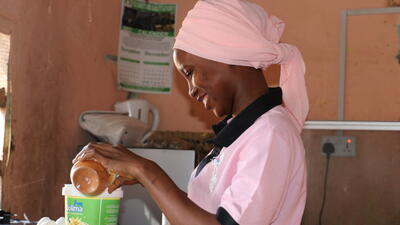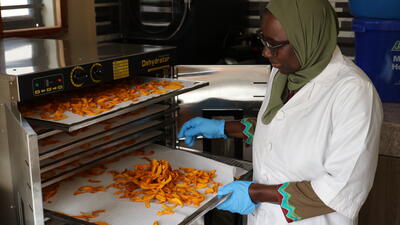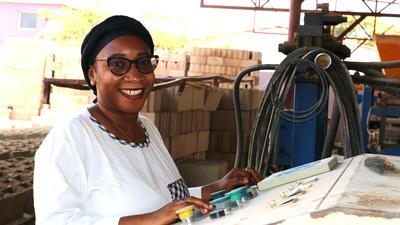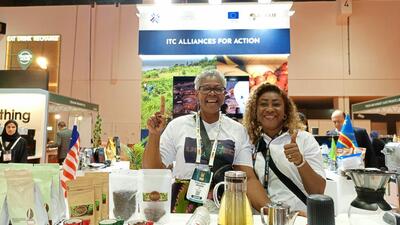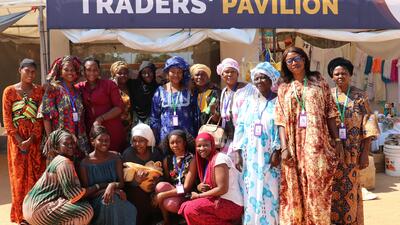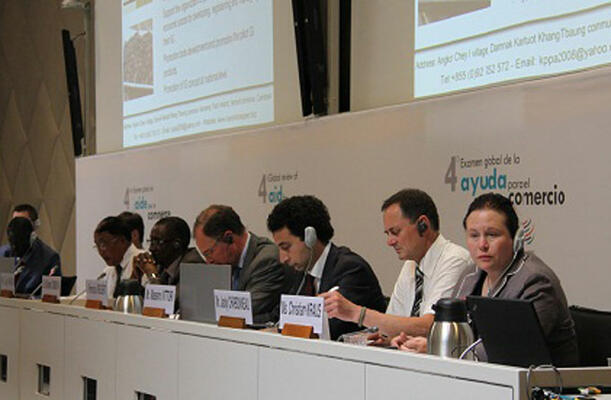
Experts discuss the benefits of geographical indications and the support needed to make them work
Geographical indications (GIs) increase revenues for local producers and satisfy the needs of more conscious and demanding customers, but developing countries need support to implement GIs, according to a panel that included experts from the International Trade Centre (ITC), meeting at the 4th Global Review of Aid for Trade at the World Trade Organization in Geneva on 9 July. A GI signals a link not only between a product and its specific place of origin, but also with its unique production methods and distinguishing qualities. GIs are often a key to higher and more stable export earnings, and can make a positive contribution to rural development, the preservation of diversity, the quality of products and local jobs.
Speaking at the meeting, Massimo Vittori, Managing Director of OrigGIn, the Organization for an International Geographical Indications Network, said: ‘There’s a growing interest for GIs at the global level. 178 GIs are currently protected in India, 400 in Central and South America, and the first GIs have now been registered in Africa. Not only are GIs a vehicle to preserve local “savoir faire” but they also reduce rural exodus and contribute to social cohesion.’
Kampot Pepper from Cambodia is one product which has benefitted from GIs. Lay Nguon, President of Kampot Pepper, told delegates at the meeting that there were many challenges in establishing GIs in Cambodia but the benefits have far outweighed the difficulties, and in four and a half years, since the GI was set up, the turnover of the producer group has increased four-fold: ‘The promotion and development of GI is a tool for regional promotion and also for protecting our own heritage. It has allowed better collaboration amongst producers, market operators and authorities and has improved quality and control systems.’
There is a considerable need for financial and technical assistance to ensure the sustainability of GIs in developing countries, said Cécé Kpohomou, Programme Manager at the African Intellectual Property Organization (AIPO).
Jacky Charbonneau, Chief of Enterprise Competitiveness at ITC, said: ‘GIs maximise the added value of exports for the benefit of rural communities. They are a powerful differentiation factor for products in national and international markets, and can provide a competitive advantage. However, little can be done without the availability of adequate financial resources to market and sell GI products.’
Alessandro Tonoli, Policy Officer, Intellectual Property and Public Procurement at the EU Commission, said that the EU can provide technical co-operation on GIs, including providing training for administrative and judicial staff and increasing awareness amongst potential right-holders: ‘GIs can be an option within the reach of small producers to be successful in world markets. They can create value for local rural communities in developing countries through products that are deeply rooted in tradition, culture and geography. GIs also have the potential to enhance economic rewards for sustainable production through traditional methods.’
‘GIs are at the crossroads of various issues,’ said Jean-Claude Chesnais, Programme Manager at AFD, the French Agency for Development. ‘They are an instrument of development, they help improve quality and can aid the fight against poverty. They allow isolated populations to facilitate contacts with buyers, add value to the originality of producers and improve the quality of production.’
The panel discussed the importance of monitoring, marketing and protecting GIs, and ensuring that producers and enterprises in a GI region work together. Alexander Riveros, Trade Law Associate Expert at ITC, said: ‘Successful GIs needs to be measured over the long term, therefore we aim at strengthening producer organizations and institutional structures and making sure that effective legal protection, with a solid national regulatory framework, is in place to protect GIs.’






